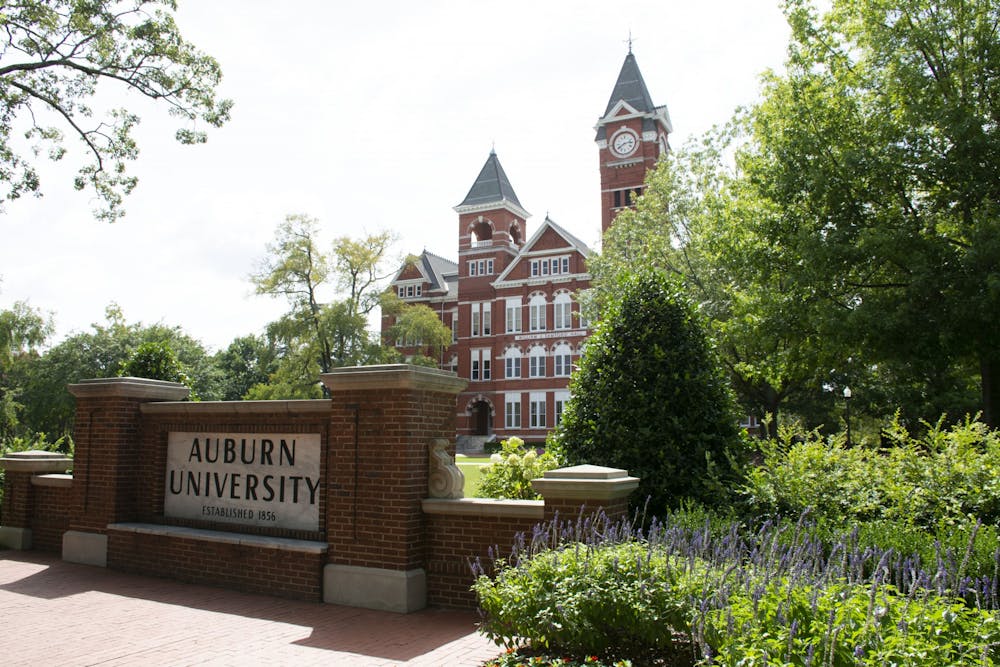Auburn University reported 16 COVID-19 cases on campus for the week of Feb. 22–28. This is a slight increase over the previous week, which saw 12 cases between Feb. 15–21.
The University conducted 570 COVID-19 tests through its sentinel testing program from Feb. 22–28, none of which came back positive. The week of Feb. 15–21 saw 567 tests performed, returning a 0.2% positivity rate with one positive test result.
In his weekly update video, Dr. Fred Kam, director of the Auburn University Medical Clinic, said the University is in great shape based off its latest COVID data.
"[This is] probably the best shape we've been in in a year," he said. "The number of cases is down, positivity rate is down, the last week not hitting the full number for sentinel testing — we had zero positives."
These low numbers led the University to increase its in-person event attendance limit to 100 participants last week as community transmission has greatly decreased. If this trend continues and the campus community continues to follow recommended distancing and health guidelines, the University will consider further raising the attendance limit, Kam said.
"We're really looking not to get back to normal, but to some degree of normalcy because we feel that that is important," Kam said.
Regarding recent new COVID-19 variants originating from New York and California, Kam said people should continue to expect more variants as the year continues. Kam noted the United Kingdom variant was predicted to become the most dominant of them all and will likely lead to another surge in the near future, he said.
Kam said the University received 2,000 additional doses of the Moderna vaccine Monday morning, which will allow the Med Clinic to complete its current backlog of second doses, including some overdue to be administered. In total, he said 9,460 doses have been given up to this point — over 5,400 were first doses.
"We'll get to all the second doses within the next week, and we will announce clinics for first doses based on how much vaccine we have on hand," Kam said. "For those of you that need second doses, check your email for an email from 'A Healthier U,' check your spam folder, check your inbox, check your junk box; don't miss that invitation."
Kam said the clinic does not have an ordered list of individual names so it cannot inform people of when they will receive their first vaccine shot.
"We've got a group of people who've shown interest, and we're going to randomly choose from that group," he said.
The U.S. Food and Drug Administration approved emergency use authorization of the Johnson & Johnson COVID-19 vaccine nationwide on Saturday, which is a single-shot vaccine unlike others like Moderna which requires two doses and does not require ultracold refrigeration for storage. Kam said while the efficacy of the Johnson & Johnson vaccine is lower, people should not focus on this number compared to other approved vaccines.
"What you should focus on is that this specific vaccine did as well in preventing hospitalizations and deaths," Kam said. "It also did very well in dealing with moderate to severe disease, and that's really at the end of the day what we care about most."
Kam said the introduction of the Johnson & Johnson vaccine should lead to Auburn's overall vaccine supply improving significantly and that he hopes to have as many doses administered as possible before Easter and before the beginning of summer.
In an email to The Plainsman, Kam stated that while 40,100 Johnson & Johnson vaccines will be shipped to Alabama in the first week of federal approval, the University has "not received any indication about receiving ... doses."
"Knowing we both have ultracold storage capacity and a significant team to mass vaccinate people, I suspect that ADPH will distribute [Johnson & Johnson vaccines] to doctors' offices initially who do not possess these capabilities," Kam said. "We will gladly accept and distribute them if given an allocation."
Looking at virus transmission on campus, Kam said the University has not observed any examples of COVID-19 spreading in a classroom environment. Most cases are picked up through social interaction with housemates, family members or significant others, he said.
"I think one of the biggest reasons for the low transmission has to do with people wearing masks consistently, the effect to distance when possible and people sanitizing their hands," Kam said. "There's no question that that's again the most preventative strategies."
Do you like this story? The Plainsman doesn't accept money from tuition or student fees, and we don't charge a subscription fee. But you can donate to support The Plainsman.

Tim Nail, junior in journalism, is the campus editor for The Auburn Plainsman.





